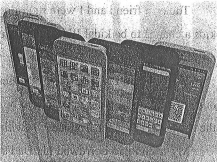题目内容
Color shapes our view of __world and it may have ___far more influence on our lives than many of us realize.
A. a; a B. the; / C. the; the D. the; a
D
【解析】
试题分析:考查冠词。第一空用the特指world,指所有人都知道的这个世界;第二空是固定词组have an influence on…对…有影响;句意:颜色塑造了我们这个世界,也许颜色对我们的影响会比我们现象的更大。故D正确
考点 : 考查冠词

练习册系列答案
相关题目
 ghborhood altogether. But when asked if the-v would like to see Chinatown gone, the answer was always a strong no.
ghborhood altogether. But when asked if the-v would like to see Chinatown gone, the answer was always a strong no.
 st creative and the best cooks.
st creative and the best cooks. try to make what the teachers teach ________in class.
try to make what the teachers teach ________in class.